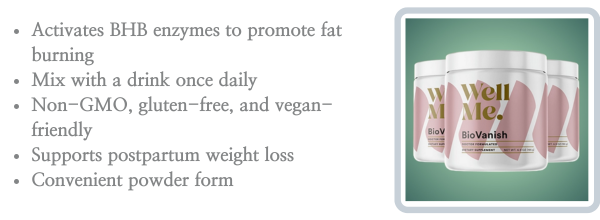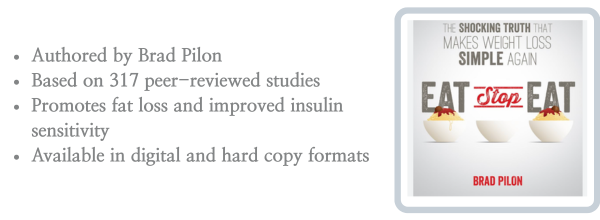
Let’s be real for a second: this piece is all about the weird, subtle ways your body tries to tell you it’s running low on protein—even if you’re not at the gym all day. Stuff like always being exhausted, your brain feeling a little foggy, or getting sick basically every time someone sneezes near you. We’ll get into why all this happens, give you the actual science behind what’s going on, and toss you a few practical ideas you can start using today. If you’ve ever looked at your plate and thought, “Am I missing something here?”—this is probably worth a read. Ever have one of those weeks where you’re just running on empty, zoning out even when you slept fine, or glancing in the mirror thinking, “Wasn’t my hair a lot thicker last year?” Same here. Turns out, all those sneaky, random symptoms could have the same root: not enough protein in your diet. It’s wild—we act like protein’s something only bodybuilders need to worry about, but honestly, it quietly props up so much of our health that slight dips can mess with you in ways nobody warned you about.

Let’s be real for a second: this piece is all about the weird, subtle ways your body tries to tell you it’s running low on protein—even if you’re not at the gym all day. Stuff like always being exhausted, your brain feeling a little foggy, or getting sick basically every time someone sneezes near you. We’ll get into why all this happens, give you the actual science behind what’s going on, and toss you a few practical ideas you can start using today. If you’ve ever looked at your plate and thought, “Am I missing something here?”—this is probably worth a read.
Ever have one of those weeks where you’re just running on empty, zoning out even when you slept fine, or glancing in the mirror thinking, “Wasn’t my hair a lot thicker last year?” Same here. Turns out, all those sneaky, random symptoms could have the same root: not enough protein in your diet. It’s wild—we act like protein’s something only bodybuilders need to worry about, but honestly, it quietly props up so much of our health that slight dips can mess with you in ways nobody warned you about.
We always hear that protein is “important,” but what does that even mean? If you dig into it, protein works kind of like your body’s all-purpose repair crew—it patches up tissues, props up your immune system, keeps your body chemistry balanced, and, well, basically keeps you moving. When you don’t get enough, it’s like sending the repair guys home early. Things just don’t run right.
Sure, extreme protein problems get a lot of attention—think of those heart-wrenching photos from serious food scarcity zones. But here’s a plot twist: even mild, not-obvious protein shortages can sneak up on people in wealthier countries too. Healthline’s got this whole explanation about the “protein leverage hypothesis,” which means your body might actually drive you to crave more and more food—especially carbs and fatty stuff—when what you really need is, well, actual protein. Go figure.
It’s weirdly easy to start falling short. Maybe you’re experimenting with some restrictive diet plan, or you didn’t get the memo about balancing your meals, or maybe life just got hectic and food planning went right out the window. For some folks, being pregnant or having a health issue that messes with absorption just ups the risk for falling behind. Most of the time, you have no clue until your body starts throwing you all these odd, “Hello? I need help here!” signals.
The frustrating thing is, protein shortage doesn’t always broadcast itself loudly. It’s more like your muscles quietly shrinking, your strength dipping, or you suddenly getting a little unsteady. I was actually surprised (I mean, really, who knew?) when I read on WebMD that muscle loss can nudge your balance off—not just make you feel weak, but actually make you a little wobbly, especially as you rack up more birthdays.
And here’s a curveball: not having enough protein doesn’t just mess with your body, it messes with your head. UCLA Health laid it out—if you’re running low, the chemicals in your brain meant to steady your mood can’t do their job properly. That’s when you get brain fog, feel grumpy for no real reason, or have a hard time grabbing stray thoughts flying around in your mind.
I’ve truly seen this play out. One of my friends spent months catching every cold, dragging her feet through the day, always on edge. She tried everything… until she finally took a good look at her diet. She added Greek yogurt, tossed some nuts and seeds in with her breakfast. Swear to you, after about a month, she was practically bouncing off the walls again—in the BEST way.
If this all sounds uncomfortably familiar, give it a shot: try adding a bit more protein—a handful of beans, tofu cubes, a sprinkle of seeds—to each meal and see if things shift. And if nothing changes after a while, or you feel worse, no shame in getting some real advice from a doctor or nutritionist. Protein needs are so personal; it’s seriously not one-size-fits-all.
At the end of the day, your sweet spot for protein is as unique as you are—depending on how much you move, how old you are, or whether you’re dealing with health stuff. Just pay attention to how your body feels, and if something still seems off after you make a few tweaks, it’s totally okay to rope in a pro to help you figure it out.

At the end of the day, your sweet spot for protein is as unique as you are—depending on how much you move, how old you are, or whether you’re dealing with health stuff. Just pay attention to how your body feels, and if something still seems off after you make a few tweaks, it’s totally okay to rope in a pro to help you figure it out.
sources
- 8 Signs and Symptoms of Protein Deficiency – Healthline
- Signs You’re Not Getting Enough Protein – WebMD
- Are you getting enough protein? Here’s what happens if you don’t
Today’s related searches: how to increase protein absorption naturally, protein deficiency hair loss treatment at home, best plant based protein sources for deficiency, how to recognize mild protein deficiency symptoms, adding protein to vegetarian diet
Each offers exceptional value and is designed to support your health in meaningful ways


